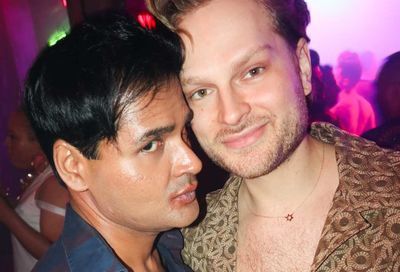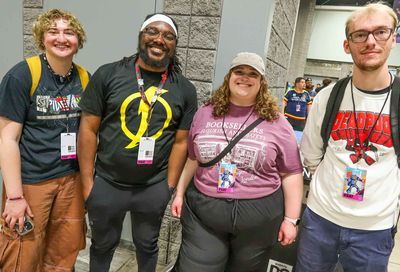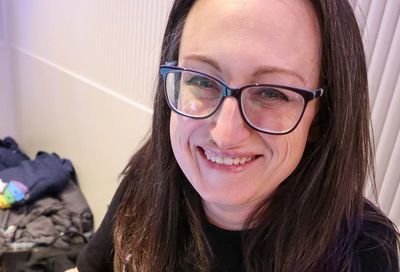Stories of Life
Realizing the humanity and experience of trans people is a needed step for equality
As a transgender woman writing at Feministing.com, I regularly cover trans-related stories. I also critique the almost-always poor coverage from mainstream and even LGBT publications. Far too often these stories are about violence against trans folks and the failure of news sources to report accurately and respectfully. In these stories, trans folks — overwhelmingly trans women of color — are reduced to victims of violence or simply dead bodies. What’s missing are the stories of these people’s lives rather than of just their deaths.
My favorite trans-related piece I’ve written isn’t about violence or death or media fails or anything particularly newsworthy. It’s about Disney’s The Little Mermaid. I didn’t have the language or concepts to understand this, but growing up I viewed the movie as a trans fairy tale. I wrote, “I identified with [Ariel] instantly. Her problems made so much sense. Her whole world was wrong – she knew where she belonged, but no one could understand. And she didn’t care, she went for it anyway, became the person she knew she should be in the world where she knew she belonged…
“When I learned words and concepts for what I’d felt about myself for years I also gained a vocabulary to understand my version of The Little Mermaid. Ariel was a trans girl.”
The response I’ve gotten from that piece has been overwhelming, personal and beautiful. Other trans women have shared their own stories, uncovered unexplored parts of their histories, and even been helped in the process of understanding their identities. I have seen the power of sharing personal stories for the community. For cisgender folks (people who identify with the gender they were assigned at birth) this piece has illuminated trans lives in a way that stories about the struggles we face in a transphobic world cannot.
Raising awareness of violence against trans folks is important, and I’m glad the media is starting to pay more attention. But to end violence we need cultural change. We need everyone to see trans folks as complex, valuable people, not just dead bodies. To help do this we need stories about the humanity of trans folks, stories like mine about The Little Mermaid.
The laudable (and ongoing) work of humanizing cisgender queer lives for the broader culture has depended on telling personal stories. In popular entertainment; on doorsteps where National Gay and Lesbian Task Force canvassers come out to voters; in profiles in newspapers, magazines and Web publications — straight folks can learn that queers are people too. In the pages of publications like this one, cisgender queer folks, especially white gay men, can see something of themselves reflected back at them. They can know their lives are worthy of this attention.
We need the same for trans folks. We need stories about what we do for fun, the art we make, the love we share, the communities we build, the extraordinary acts of resistance and survival that fill our days. And because trans women of color experience the majority of the most extreme transphobic violence, we should emphasize lifting up these voices and illuminating these lives.
Right now too many people see trans folks only as the brunt of jokes. It’s a lot easier to kill us when our humanity is hidden. To change this we must begin bravely sharing our stories. And we need LGBT media’s help to do this. We need spaces like this to write, need our events covered, need to be profiled. We need trans lives to come deliberately into focus.
Jos Truitt is a Contributor at Feministing.com where she covers topics including transgender issues and access to abortion. She supports youth reproductive justice organizers as the field associate at Choice USA. Truitt is also a printmaker who makes colorful, abstract images about her gender identity.
Support Metro Weekly’s Journalism
These are challenging times for news organizations. And yet it’s crucial we stay active and provide vital resources and information to both our local readers and the world. So won’t you please take a moment and consider supporting Metro Weekly with a membership? For as little as $5 a month, you can help ensure Metro Weekly magazine and MetroWeekly.com remain free, viable resources as we provide the best, most diverse, culturally-resonant LGBTQ coverage in both the D.C. region and around the world. Memberships come with exclusive perks and discounts, your own personal digital delivery of each week’s magazine (and an archive), access to our Member's Lounge when it launches this fall, and exclusive members-only items like Metro Weekly Membership Mugs and Tote Bags! Check out all our membership levels here and please join us today!



















